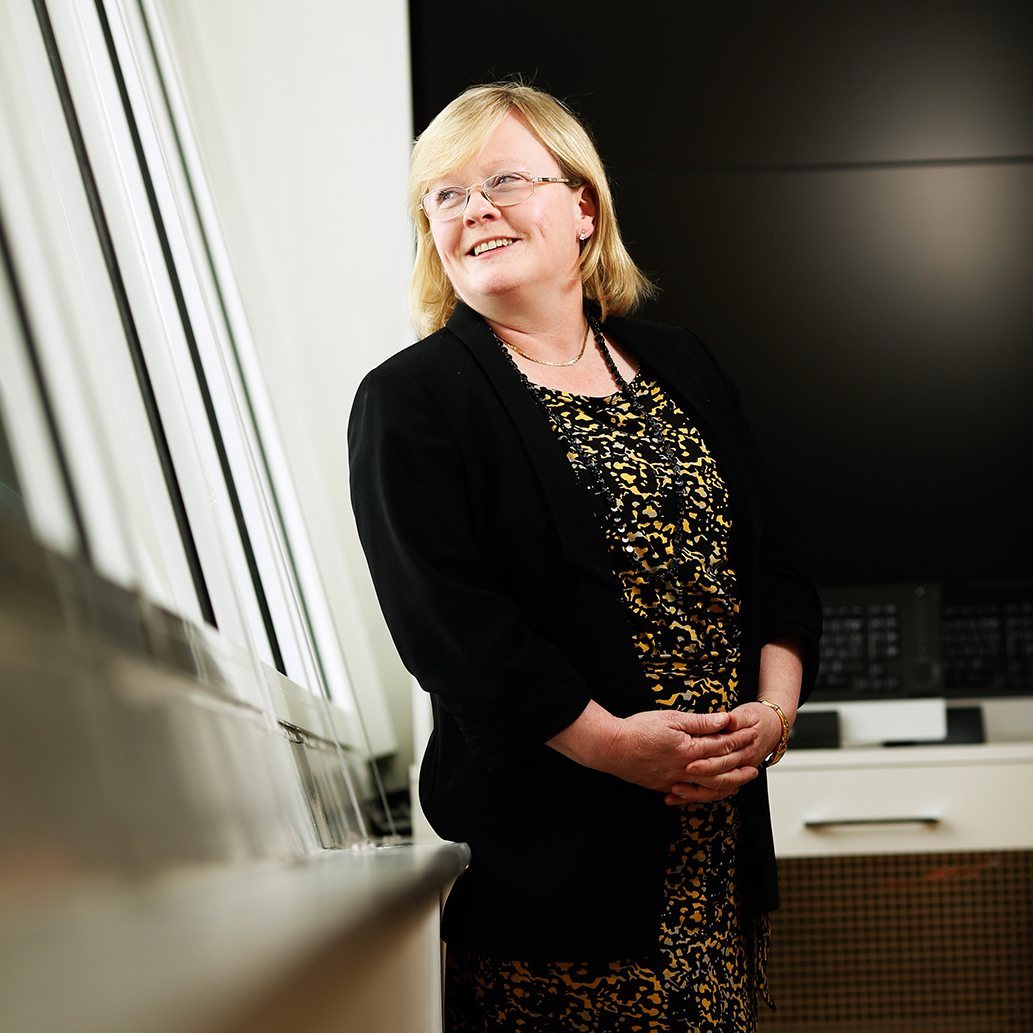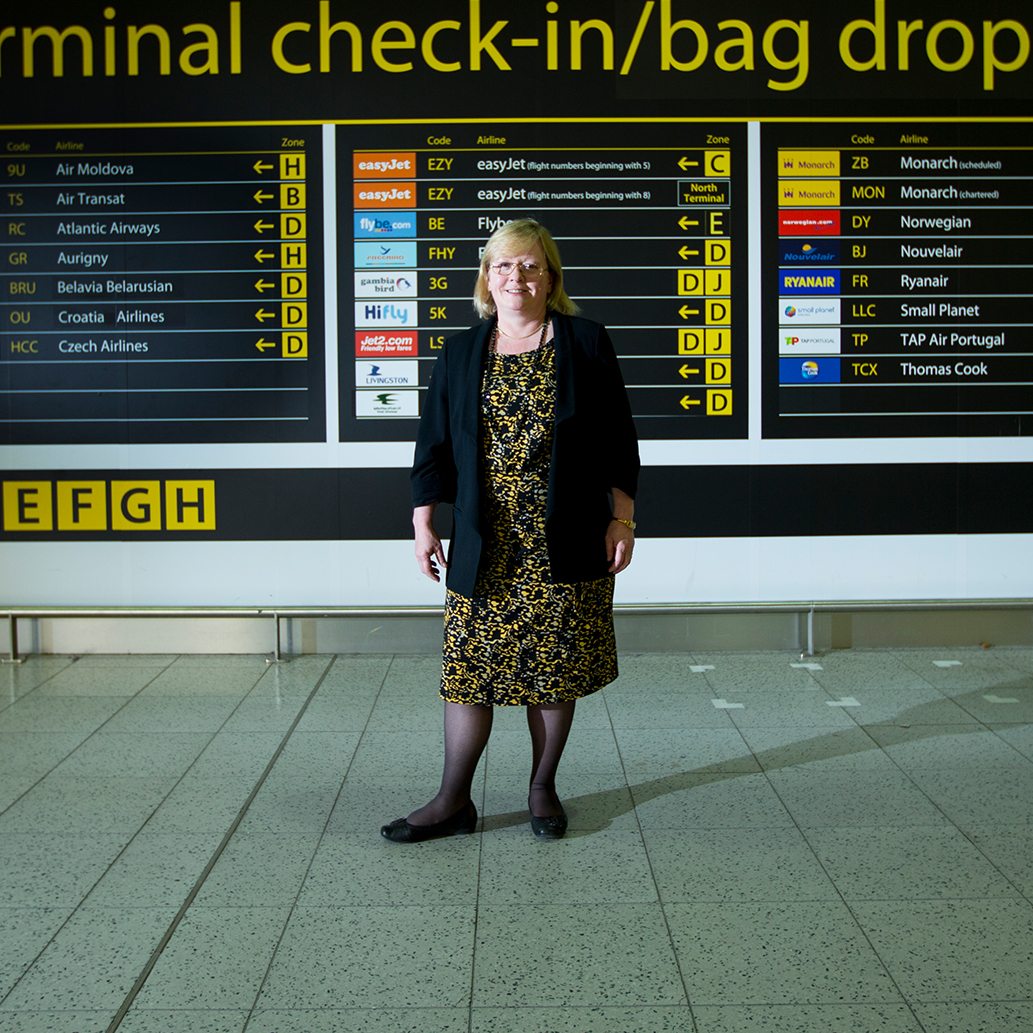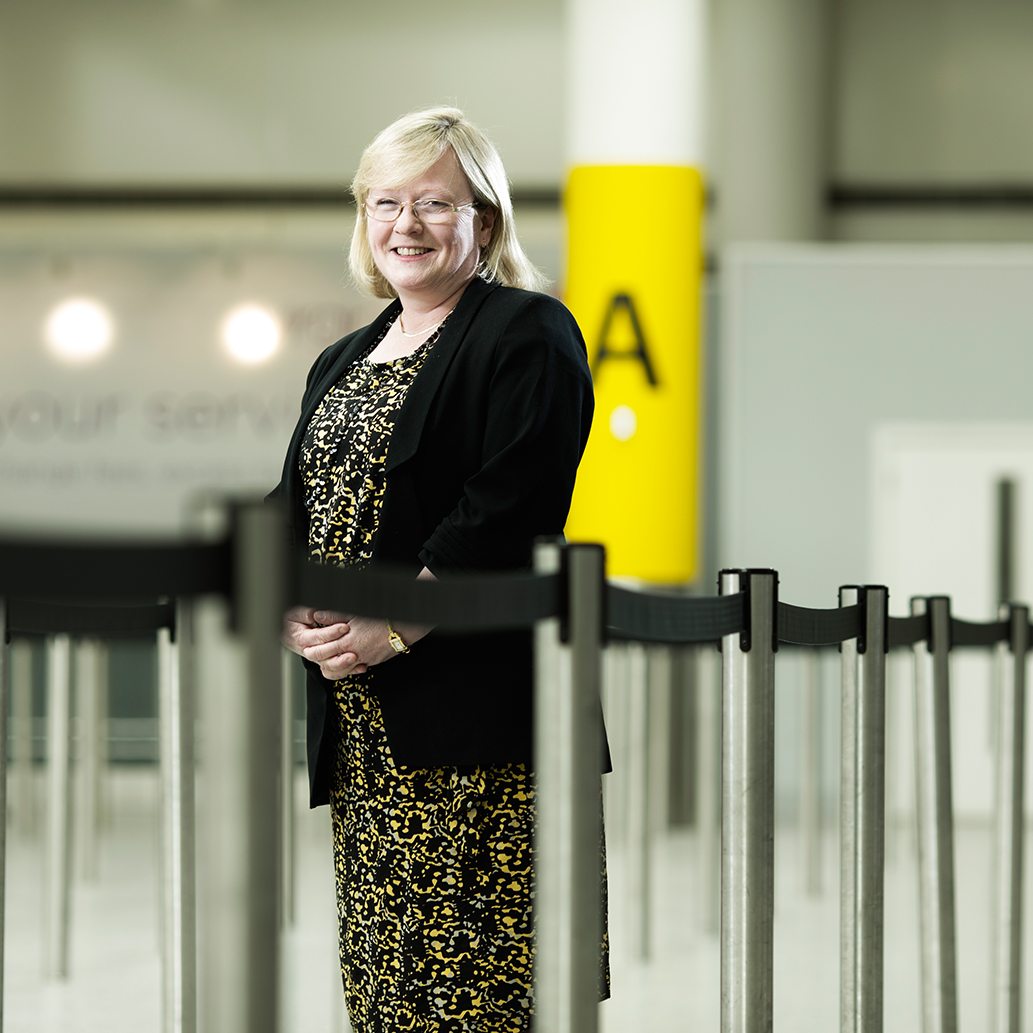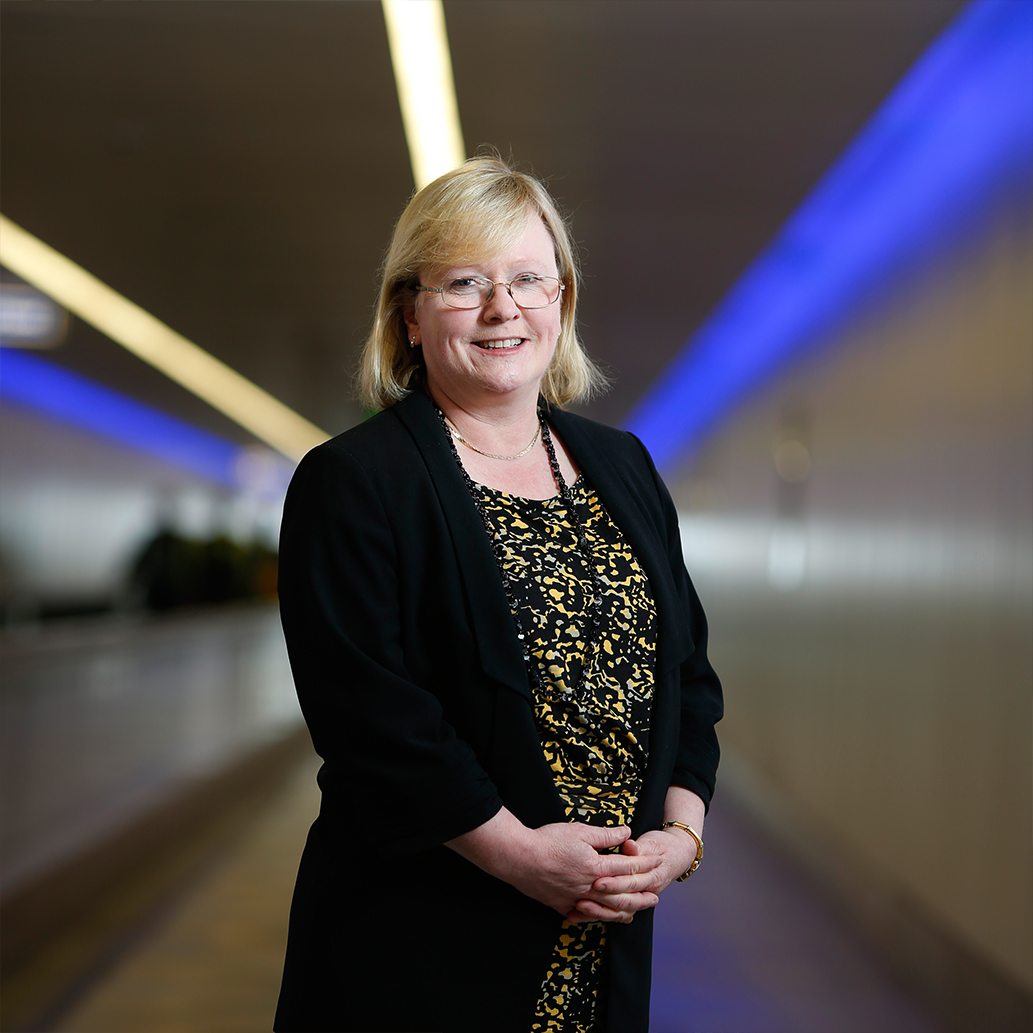Tina, Give us an idea about your early career and what was it about HR that appealed?
I joined British Airways as a management trainee in 1978, and my first job was as an Industrial Relations Manager, so I was kept quite busy. I very quickly realised that I liked the people side of the business and I was moved into the line, as a shift duty manager, aged 25. That was a big role in a very big and busy organisation and, in all senses, this job was about people management, dealing with quick and constant change around the clock, it was all- encompassing and a constant buzz of activity. I then moved over to running the call centres, and this was an introduction to a full-on commercial working environment. So I was very fortunate to be able to experience an array of different roles which provided a well-rounded set of experiences in general HR. When I joined BA, it had just been privatised, so it was in a state of significant change, as it needed to be leaner and much more cost-efficient to compete. At this time, there was a great deal going on in the airline business – take overs and mergers – so there was a real need for efficiency, cost and resource cutting.
From an HR perspective, it was traditional personnel when I joined, but as I moved roles and the workplace became more complex, I was gaining a great deal of HR experience, and took every opportunity to develop my skills and understanding. So along with the day-to-day management, I was really starting to work and think strategically, much more long-term thinking, as opposed to planning rosters for next weekend. BA is like this huge machine and so, if one aspect of the operation wasn’t carried out properly, everything would grind to a stop. I think for me the model that really worked was when I was running the call centres, the line managers owned everything to do with their people and didn’t want HR involved, and for me, it shows what can be achieved by getting the right people in and standing back, and that’s the significant shift I’ve seen in HR. The experience I was gaining at BA was very valuable, but from a career point of view, much of it had been sideways movement, as opposed to progression, so I left, after 26 years. I had a good set of experience, and I really wanted to try for a more senior HR role, so I went for an opportunity at Hovis as HR Director.

From a commercial airline to a bakery, that’s quite a different working environment.
Like BA, Hovis was very operational, which is an environment I love and thrive in, and I really like to be hands on. In this type of operation, HR has to work doubly hard at making sure people are in place, properly skilled with all the tools, capabilities, health & safety etc.,in order to reduce disruption to non-stop production. It’s all about delivering results in the most efficient way possible, of course, and Hovis gave me the opportunity to really prove myself as HR Director. For sure, it was a steep learning curve, especially considering that the company was being prepared for flotation, and I was very involved in a really successful programme when it was purchased by Premier Foods. The big battle for Hovis was for market share and so, in addition to managing the turmoil within the organisation, we were also building relations with third-parties, suppliers and distributors, to work on the lowest margins. So in many ways, I could draw a lot from my experience at BA although notably, I was for the first time working strategically, really thinking through the long range challenges. But there was something missing, and I realised that I really wanted to get back into travel and transportation, and when I saw an opportunity at P&O Ferries, I went for it and got the post of HR Director.
Of course, P&O is a fantastic brand with tremendous heritage and what was immediately clear was that, although it was a sector I knew well, sea-faring is a very different culture. For the business, the biggest challenge was around costs and profitability. So this was very familiar territory, predominantly it was about cost efficiency, and we did a lot of work around leadership, both the shore-based and sea-based people, and we created a leadership team from scratch. In fact, every aspect of change needed to happen and quickly. Again my BA experience was played out there; we really began to make significant changes to costs and margins. It sounds an obvious statement, but working in shipping was entirely different to airline, even though they are both about moving freight and people around. But then the job here at Gatwick came up and, to say the least, I was very excited by it.

What was it that London Gatwick was hoping that you would be able to deliver?
Most people will know what a major international airport is like, from the point of view of a traveller. Pretty much a 365 day 24/seven world, morning, noon and night, it’s a huge building that basically welcomes and processes millions of people from every corner of the globe, going from A to B. It can never stop, and so taking stock of how it operates, planning and executing changes in process, introducing a new process, all has to be done in unison with non-stop operation. This alone made it very compelling and a career challenge that I wanted. There are 2,600 people that work at Gatwick, they come to the same place every day, but it is not a workplace that could be described as the norm. So I think under such circumstances, with the constant pressures and movement, it is very easy to lose sight of the people piece of the business. So that was my challenge, and I thought improvement in engagement and performance was very doable, with some good HR planning.

Give us an idea of how you get to grips with a place like London Gatwick, in terms of where to make a start?
The starting point had to be the employee survey, because when I got here, it was a shocking set of scores, so those results gave a clear indication of where to make a start, but we needed a focus, and there was nothing in place which could make the relationship happen. I was surprised at the results being so poor, because you could sense change in the infrastructure, but people were way behind. So straight after the employee survey, I met with a sample of employees, representatives from across the organisation, and carried out structured interviews. The main thrust of this was to get some two-way conversation going, and a flow of fact-finding, in order to get to the heart of the matter, find out how everything operated, what the obstacles in the path of improving performances were, before plans and ambitions could be set that would lead to measures towards doing things better. Crucially, what I wanted to know was, what people expected from their leaders, and looking at the two groups first, in isolation. Of course, we had senior leaders, and we needed to get this group of executives pushing in the right direction to get change happening. Essentially, this was the heads of the many and various departments that make the operation at Gatwick tick, and of course we had to get the wider staff engaged in what we had planned, to get some traction for change. Also, beyond HR providing the initiative, I thought it was wholly pertinent, and probably the only way of assuring long term success, for them to take ownership of the plans, so hearing their side of it and, crucially listening, was absolutely key.
There was also an image issue and a confidence piece that had to be addressed too, in order for momentum to get underway. I think Gatwick had always been seen as the little cousin, somehow less important than Heathrow and, as I worked at Heathrow for a number of years at BA, this perception from staff struck me as an issue that had to be addressed. Having experienced both, yes they are different airports, but even a cursory analyses of the two reveals some obvious strengths and advantages that Gatwick has over its larger rival, that I felt wasn’t being seized upon and used effectively in building employee ownership. Gatwick is a much more friendly and relaxed airport. By comparison, Heathrow is quite a daunting place and absolutely huge, both for travellers and employees. In my own experience at Heathrow, I often thought that, if I ever got into a position of influence, I wouldn’t run it the way it was being run, and that’s something I have felt very passionate about ever since. What has really driven my principles on how I’ve made the changes, most significantly, was about how the employer/employee relationship plays out, and I was determined that people would feel they were always well supported in every aspect of work and career, and that whilst we are all cogs and wheels in a vast and complex engine, everyone must have an acute understanding of the part that they play and their responsibilities. The knowledge that they are listened to, and recognised for a job well done, was fundamental.
What are the credentials do you think you need to have to make any impact in a workplace like Gatwick?
Above all else, you have to act with integrity at all times, not just in the grand scale but critically, in the close-quarter dealings and detail. Equally, you’ve got to demonstrate true values, as well as be mindful that you might not be pushing on an open door. The trade union, for example, seriously doubted our ability to be able to pull it off and to influence people to make those changes. But I think if you stick to the plan, don’t waiver when things look too difficult, and always deliver on your promises, over time, even they began to realise that what we said we would do, we did. Somehow, despite difficulties that had to be overcome, in my own mind, there was never any real doubt that we could deliver. We had set out a three year plan, ambitious and meaningful, and we stuck to it, and today the union acknowledges that there has been significant changes that have achieved noticeable improvement. The second stage was again, an eye opener. We had a second big conversation and was still hearing about things that hadn’t been sorted, which bore testament to the fact that this was a huge and complex undertaking. There were still problems, great and small, 25 percent of people told us what was still getting in the way of improvements, and despite some disappointment from some colleagues, I actually found this really encouraging. The reason being that people felt confident about being transparent, that they felt empowered to tell it how it is, and also that the improvements that the changes were providing were shining a light on the other aspects that needed to be addressed. It really brought those other agendas into sharp focus, making them easier to get to grips with. You name it; uniform, shoes, chairs and toilets – we had a long list of various issues and determinedly, we worked our way through.
When did you start to realise that those changes were really starting to make a difference?
That’s a good question… it was when we stopped hearing so much about the staff and workplace issues and started to hear about the problems affecting passengers using Gatwick Airport. We were moving from a formal consultation process, to one where we were engaged in a continuous, two-way qualitative and informative flow, and that was proof positive that people were taking full responsibility for their part in making the airport operate at its maximum effectiveness. You know, this was a journey that started with conversations like: “everybody hates their uniform, the shoes are uncomfortable”, important issues of course, that we could rectify – importantly with everybody’s input – to a completely different set of perspectives, focused almost entirely on improving the experience of the customer. That has been a hugely rewarding outcome, and bodes well for all the plans and changes that are crucial to the future developments in and around the airport.
How do you maintain focus when so much has to be achieved? It must be tempting to prioritise one important issue, perhaps at the detriment of another.
I see my role in very plain terms and that is to get the workforce in shape to compete and this is an important point, because it actually was not the mind-set of this organisation when I first joined. So what has been achieved is significant. Now there’s an edge and an awareness, that whatever aspect of the operation, whether you’re operating out of a brand new state-of-the-art building, none of that matters if customers feel they are, say, treated rudely by staff. All the millions invested in bricks and mortar, becomes immaterial. Of course, consistency underpins everything, it’s no good having a good day, followed by a bad day. I was lucky enough to go to Disney in Orlando to take a look at what they had been introducing to up their game, in terms of customer experience. I thought it was brilliant, and I reckoned elements of what I’d seen there could be adapted to Gatwick. They say that the best form or flattery is imitation – well that’s my excuse – and so we have devised our own Gatwick version in a programme called “Turn It Up”, which describes passenger expectations against experiences, what they would like every day to look like. So that programme is going out just as we are introducing the new wardrobe, and our hope is that when we put on the uniform, that will be a key part of stepping up into this new role. I remember when I put my BA uniform on, I felt very proud, and I hope that this feeling will be prevalent for the people at Gatwick. It’s often been said, but I think one of the truly great successes of London 2012 was the brilliant games makers, and people get that, that enthusiasm and level of interaction was so compelling, a real antidote to any pessimism that might have still been hanging around 2012, and just goes to prove how powerful the people piece is, even on a grand scale like the Games, and the Olympics really brought the best out of Gatwick, and has proved a terrific influence for us.
You said BA was frustrating in terms of your career, how is that influencing your approach to career potential at Gatwick?
As you can imagine, there is a lot of activity planned around talent management and the culture for people to feel that opportunities are open to them. Perhaps not surprisingly, we have a wide group of people from those that are looking for a stopgap job, to those that see Gatwick as a long-term career. We have some very talented people in the numerous departments at the airport, and I’ve worked at creating a culture that management and leadership are completely onside with, moving talented people up through the ranks, rather than what I experienced, a series of sideways moves at BA. So now we have that impetus and we are all looking at talent attraction and retention, through development, in terms of skills and career, as well as a culture which promotes career progression. This is a part of an overarching programme that we call the “Rhythm of Gatwick”, which promotes a more direct and sensitive line of management. A good example is with our security staff, they come to the same place of work every day, but every day is potentially different, in terms of what they need to be aware of. So in the past, it was difficult to brief a large group of people, all working different shifts, to make them aware of very important information. So we have teams that are much more aligned with their team leaders.
At what stage are you now, in terms of the overall programme, and what is left to do?
Well things were pretty bad before, so there’s still a long way to go. I think we are still at base camp, we still have work to do, in terms of consistent leadership. We have the foundations and the next phase is the continuation of improvements in passenger experience, so continuing to focus on the importance on passenger experience. Yes people are more engaged, so there are definite and strong improvements. Underpinning all the good work we’re doing is the stability of ownership over the past three years, the shareholders, we feel confident that we are in charge of our own destiny, so that is a major part of the building blocks necessary to bring through the changes. I think what is absolutely key now is consistency and momentum. For example, we have for the first time ever, got performance management moving in the right direction, and we’re having the conversations to ensure that people are at the right level they need to be, and looking at making sure we have the skills to meet the challenges in the next stages of our development.
Looking to the future, what do you think are the big challenges for Gatwick?
I think it’s being competitive and making those shifts. As I look ahead we need to look towards our cost base in a way that keeps people engaged, and were going to do it in an informed way, and a significant focus will be on the passenger experience, especially in consideration of the building work that is being done. As for talent development in the future, I want to build a culture where people are developed from within, the leaders of tomorrow, to really galvanise Gatwick as a place for great long-term career development, for those that want that. That is going to be a significant step-change in engagement and performance, in my opinion.
What would you say, from your personal career experience, has driven your objectives here at Gatwick?
You have to have tough skin in HR, especially in an environment like this. At first, there was quite a lot of resistance to the changes I wanted to bring through and even personal resentment. It’s important you don’t take things personally when you have a job to do and you are convinced that what you’re about is right for the organisation. You have to have sharp elbows, indeed so does HR in general, and having an edge is important and I don’t see HR as just a service provider, there has to be steel beneath the skin.












